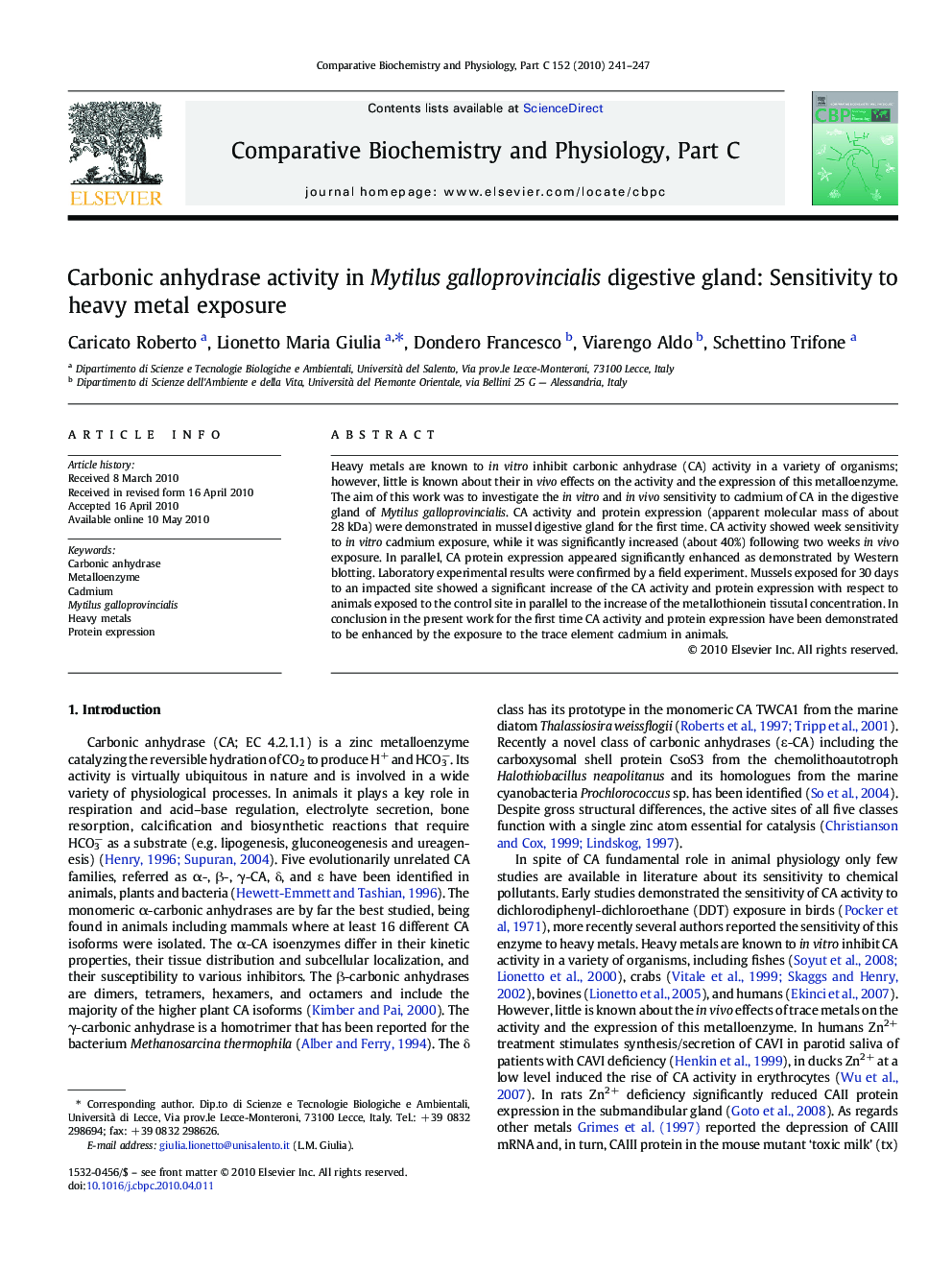| Article ID | Journal | Published Year | Pages | File Type |
|---|---|---|---|---|
| 1977602 | Comparative Biochemistry and Physiology Part C: Toxicology & Pharmacology | 2010 | 7 Pages |
Heavy metals are known to in vitro inhibit carbonic anhydrase (CA) activity in a variety of organisms; however, little is known about their in vivo effects on the activity and the expression of this metalloenzyme. The aim of this work was to investigate the in vitro and in vivo sensitivity to cadmium of CA in the digestive gland of Mytilus galloprovincialis. CA activity and protein expression (apparent molecular mass of about 28 kDa) were demonstrated in mussel digestive gland for the first time. CA activity showed week sensitivity to in vitro cadmium exposure, while it was significantly increased (about 40%) following two weeks in vivo exposure. In parallel, CA protein expression appeared significantly enhanced as demonstrated by Western blotting. Laboratory experimental results were confirmed by a field experiment. Mussels exposed for 30 days to an impacted site showed a significant increase of the CA activity and protein expression with respect to animals exposed to the control site in parallel to the increase of the metallothionein tissutal concentration. In conclusion in the present work for the first time CA activity and protein expression have been demonstrated to be enhanced by the exposure to the trace element cadmium in animals.
